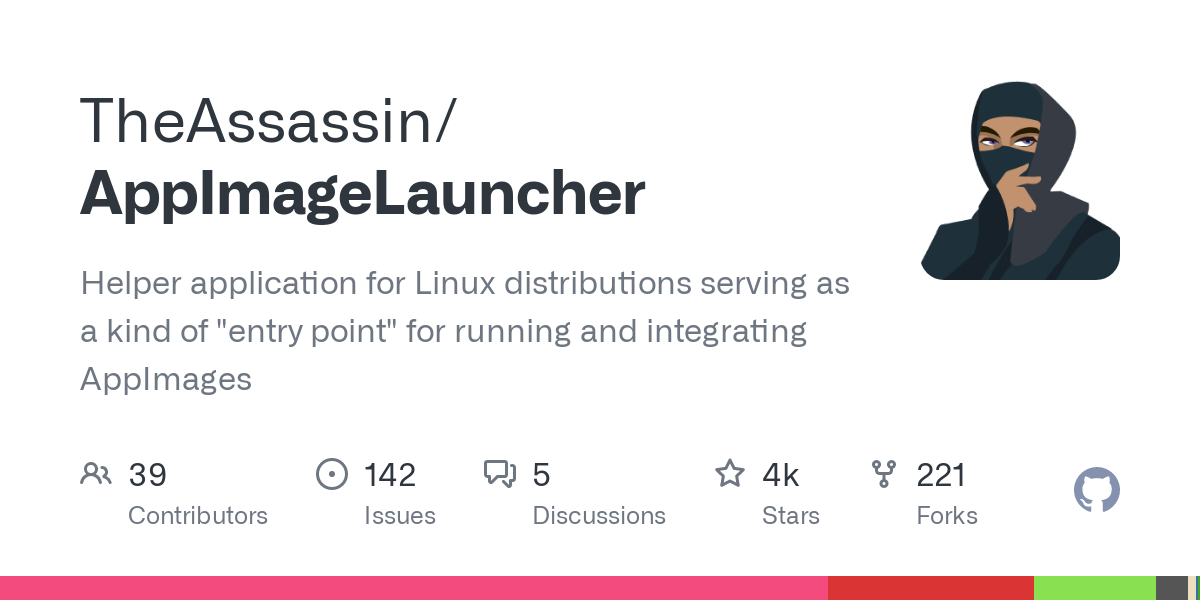I just found out about AppImageLauncher, a package handler for AppImages. It organizes them, creates desktop files for you and handles updates and removal.
Integrate AppImages to your application launcher with one click, and manage, update and remove them from there. Double-click AppImages to open them, without having to make them executable first.
Much better than having to create all the desktop files myself, and having to figure out what to put in them for it to work correctly (I’m looking at you, qBittorrent and magnet links).



It’s not some miracle packaging system and while Flatpak-installed programs tend to start just as fast as native ones, I consider it inferior for most cases. Its two big advantages are that Flatpaks have a runtime they specify and depend on. It gets downloaded and installed automatically if missing when you install a Flatpak. So you’re much less likely to run into issues where a program won’t run on your system because of an incompatibility with a missing, or newer version of some library. Each Flatpak also gets installed in its own fake environment and is essentially a sandbox when you run the program. You can use a program named Flatseal to give each Flatpak access to specific directories or functionalities, or restrict it further. But the one big negative is that this runtime uses a lot of disk space. ~800MB per runtime.
It tends to work really well and I’ve been told that years ago a guy would use this packaging system to bundle pirated windows games with a preconfigured version of wine, which made them run out of the box, with zero tinkering. On top of essentially being sandboxed and unable to access your real home folder, internet, camera or microphone. Just to illustrate its versatility. It also kind of already won the war when Steam Decks started using Flatpak as their main packaging system.
It appears to be only desktop, what would explain why it is new to me despite being creating in 2007 (https://itsfoss.com/what-is-flatpak/, quick search).
Thanks for taking the time to explain. So from what I understand, it is a universal package manager (which
apt-getis not) and it is FOSS (which I understand Snap is not)?I don’t remember anyone mentioning Snap being closed source, but it receives many complaints for interfering with the functioning of common programs, on top of slowing down the execution of programs installed through it and is now being forced on users. I haven’t touched any *buntu distro in years, but it always seemed half-baked from the comments I keep on reading about it.
Also yes, Flatpak is what I believe you could call a universal package manager. Package it once and it should run on any Linux distro since it takes most things out of the equation, save for the kernel and drivers. And yes, it mostly is used to distribute desktop applications. It’s ideal for safely running random applications or older programs that wouldn’t run through a modern runtime.
I read that Snap was propriety and a quick search did not give me any hits on their source code, but I could of course be wrong.
In brief yes, its newer then app image, and more open then snap.